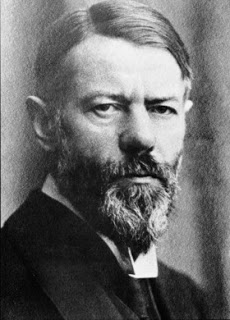Social Sciences

Max Weber's approach is almost contrary to that of Durkheim. For Weber, the individual is the basic unit of the society . He opines that the finding of sociological laws is but a means to understand man. In his system, sociological laws are "empirically established probabilities or statistical generalisations of the course of social behavior of which an interpretation can be given in terms of typical motives and intentions. Sociological method is a combination of inductive or statistical generalisation with verstchen (understanding) interpretation by the aid of an ideal type of behavior, that is, assumed to be rationally or purposefully determined".
Weber devoted much of his efforts to expand a special method called the method of understanding (verstchen) for the study of social phenomena. He stressed the importance of maintaining objectively and neutrality of value-judgement in social sciences. He wrote much on such topics as religion; various aspects of economic life, including money and the division of labour, political parties and other forms of political organisation and authority; bureaucracy and other varieties of larger-scale organisation; class and caste; the city; and music. His influence on contemporary sociologists especially those of analytic school is rapidly increasing. His major works are: Economics and Society, The Protestant Ethic and the Spirit of Capitalism, The City, Bureaucracy and various other books and essays.
- Sociology Of Religion
The phenomenon of religion attracted the attention of the sociologists because of its great human importance. No society is free from the influence of religion. In established societies, religion is one of the most important institutional structures...
- Political Sociology
Ever science the Aristotle, thinkers have been making systematic study of concrete political phenomena. They have been observing how political phenomena influence and get influences by the rest of the social structure and culture. In this regard, Aristotle's...
- What Did Four Founding Fathers (comte, Spencer, Durkheim And Weber) Of Sociology Did In Common ?
These "Four pioneers" - Comte, Spencer, Durkheim and Weber - it seems, agreed upon the proper subject-matter of Sociology. Firstly, all of them urged the sociologists to study a wide range of institutes from the family to the state.Secondly, they agreed...
- Sociology Before Auguste Comte?
Sociology has a long past but only a short history. Sociology which is known as the science of society, is one of the youngest as well as one of the oldest of social sciences. It is one of the youngest sciences because only recently jt came to be established...
- Methods Of Sociology
Sociology as a social science has been trying to develop its own method of study. Sociology has to face greater problems in evolving a satisfactory method in the comparison with other social sciences. Man' s social life is complex and multi-faceted....
Social Sciences
Max Weber (1864 - 1920)

Max Weber's approach is almost contrary to that of Durkheim. For Weber, the individual is the basic unit of the society . He opines that the finding of sociological laws is but a means to understand man. In his system, sociological laws are "empirically established probabilities or statistical generalisations of the course of social behavior of which an interpretation can be given in terms of typical motives and intentions. Sociological method is a combination of inductive or statistical generalisation with verstchen (understanding) interpretation by the aid of an ideal type of behavior, that is, assumed to be rationally or purposefully determined".
Weber devoted much of his efforts to expand a special method called the method of understanding (verstchen) for the study of social phenomena. He stressed the importance of maintaining objectively and neutrality of value-judgement in social sciences. He wrote much on such topics as religion; various aspects of economic life, including money and the division of labour, political parties and other forms of political organisation and authority; bureaucracy and other varieties of larger-scale organisation; class and caste; the city; and music. His influence on contemporary sociologists especially those of analytic school is rapidly increasing. His major works are: Economics and Society, The Protestant Ethic and the Spirit of Capitalism, The City, Bureaucracy and various other books and essays.
- Sociology Of Religion
The phenomenon of religion attracted the attention of the sociologists because of its great human importance. No society is free from the influence of religion. In established societies, religion is one of the most important institutional structures...
- Political Sociology
Ever science the Aristotle, thinkers have been making systematic study of concrete political phenomena. They have been observing how political phenomena influence and get influences by the rest of the social structure and culture. In this regard, Aristotle's...
- What Did Four Founding Fathers (comte, Spencer, Durkheim And Weber) Of Sociology Did In Common ?
These "Four pioneers" - Comte, Spencer, Durkheim and Weber - it seems, agreed upon the proper subject-matter of Sociology. Firstly, all of them urged the sociologists to study a wide range of institutes from the family to the state.Secondly, they agreed...
- Sociology Before Auguste Comte?
Sociology has a long past but only a short history. Sociology which is known as the science of society, is one of the youngest as well as one of the oldest of social sciences. It is one of the youngest sciences because only recently jt came to be established...
- Methods Of Sociology
Sociology as a social science has been trying to develop its own method of study. Sociology has to face greater problems in evolving a satisfactory method in the comparison with other social sciences. Man' s social life is complex and multi-faceted....
